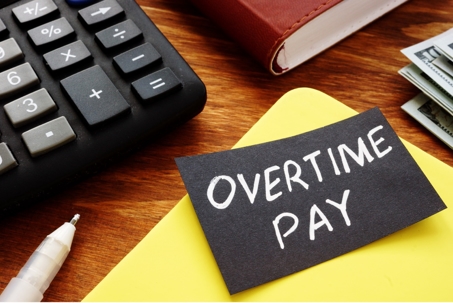Do you love working overtime? Do you thrive on the chance to put in extra hours and earn extra income?
Or do you resist and hate doing it? Do you feel burned out by the idea of working overtime, as you prefer a work-life balance and want to spend more time with family and loved ones?
In any case, what does the law say about overtime? Read on to learn the answers to these questions and what to do if your employer violates your rights.
Who is Eligible for Overtime?
Eligibility for overtime pay is generally determined by whether an employee is exempt or non-exempt. Most hourly workers are non-exempt, meaning they are eligible for overtime. However, certain workers who meet specific criteria related to their duties and earnings are exempt from overtime regardless of the number of hours worked.
The Fair Labor Standards Act (FLSA), a US law that protects workers against certain unfair pay practices, provides that “unless exempt, employees covered by the Act must receive overtime pay for hours worked over 40 in a workweek at a rate not less than time and one-half their regular rates of pay.”
Simply put, your employer does not determine when you are eligible for overtime pay nor may they refuse to pay it. If you are a non-exempt employee, your employer must pay overtime for any hours exceeding 40 in a single week.
Am I Entitled to Pay for Unauthorized Overtime?
Unauthorized overtime occurs when you work beyond your scheduled work hours without your employer's prior approval. For example, you may spend hours checking and responding to emails after the end of your shift, or you continue to work to complete a task at the end of your shift.
But are you still entitled to overtime pay? Yes. Even though your employer may discipline or reprimand you for working overtime without their permission, you still have the right to overtime pay for all hours you work beyond 40 in a single week.
The FLSA mandates that an employer should pay employees at least 1.5 times their regular wage rate when an employee works more than 40 hours in a single work week. Failure to comply with FLSA regulations regarding overtime pay can result in legal consequences for employers, including back pay, liquidated damages, and civil penalties and fines.
US Supreme Court to Review Test for Applying Overtime Exemptions
In a recent ruling on June 17, 2024, the United States Supreme Court decided to hear a wage and hour case concerning whether employers must meet a higher burden of proof to demonstrate that workers are exempt from the overtime requirements. In other words, the Supreme Court is tasked with deciding how difficult it should be for employers to prove in court that their workers are not entitled to overtime pay. The Supreme Court will hear the case during its next term, which begins in October 2024.
What Should You Do if Your Employer Refuses to Pay Overtime?
If your employer refuses to pay overtime, you should first try to resolve the issue directly with them. If that does not work, taking action is essential. For example, you can file a complaint with the New York State Department of Labor or even file a lawsuit against your employer. Here at Horn Wright, we are committed to pursuing the best possible resolution to every employment law case we represent. We help protect employees’ rights in New York, New Jersey, New Hampshire, Vermont, and Maine, handling various employment law matters.
Our experienced attorneys will work tirelessly to ensure you receive the compensation you deserve for your hard work. Contact Horn Wright today for a free consultation to discuss your legal options and how we can help you fight for your rights.
Know Your Employment Rights
Aside from overtime pay, employees have additional rights such as minimum wage, rest breaks, paid holidays, and protection against discrimination, among others. You cannot have these rights taken away.
Remember that your employer must pay you promptly and cannot require you to work off the clock. Additionally, it is important to know that you have the right to a safe and healthy work environment, protection from retaliation for reporting violations, and the ability to request reasonable accommodations for disabilities. These rights are in place to ensure fair treatment and respect in the workplace.
So, if your employer has violated your employment rights, call Horn Wright at (855) 465-4622 today to request an evaluation of your case with an experienced employment law attorney from our firm.



